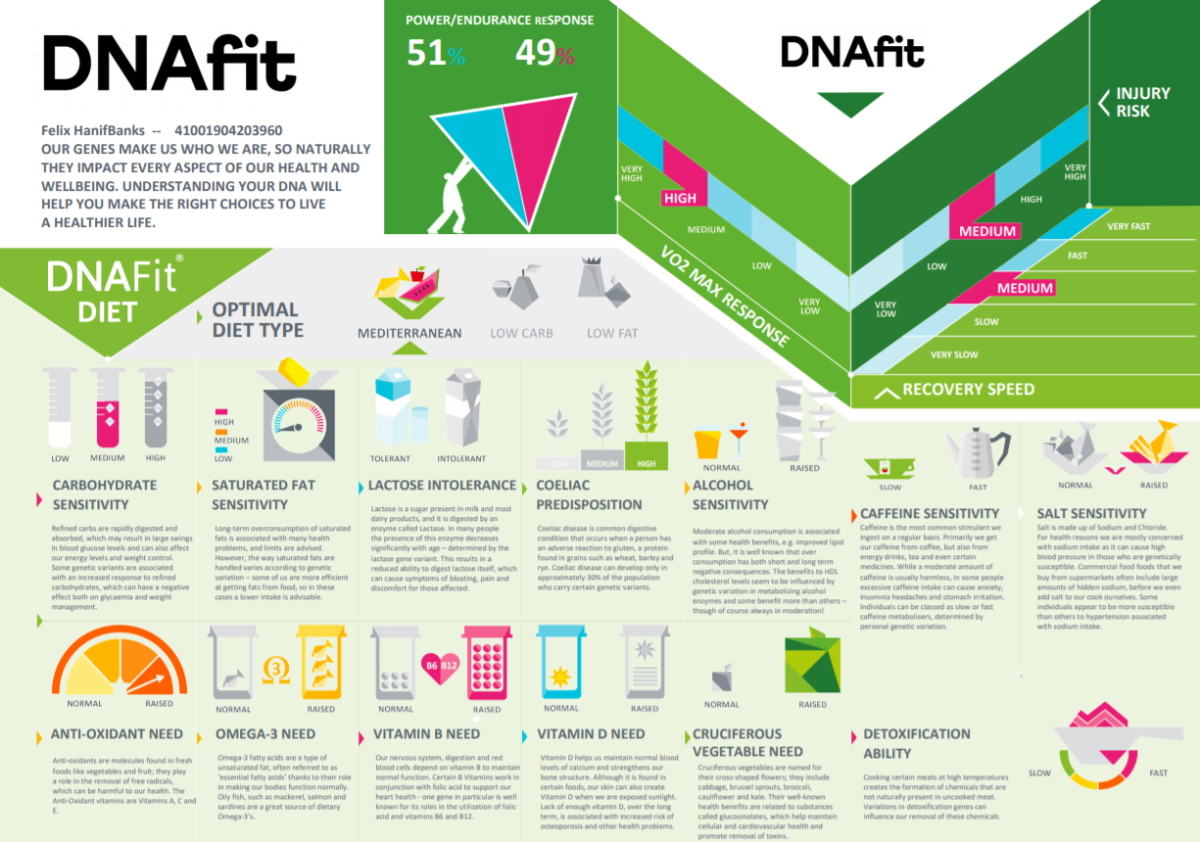DNAFit brings personalised biohacking to the people

Like most people nowadays, I’ve at least heard and at times worried about the growing trend of selling your DNA to companies in return for some great personal insight, be that ancestry, genetics or health.
This vague bogeyman-like ideal of genetics companies selling your intimate personal information to those who would do wrong with it (what wrong, exactly, is usually quite unclear) is somewhat warranted given the data-hoarding of Facebook, Google and co., but it can go too far.
We shouldn’t let these bogeymen stop genuine innovation, especially in the case of DNAFit, a company that could help many people understand their bodies in an unprecedented manner through specific genetic analysis.
Health-addict or sofa fiend, cabbage smoothie guzzler or Turkiss loyalist, no matter the state of your body or your health goals there are tangible benefits to knowing what your body responds best or worst to, and how you can change your habits, at any scale, for the better.
The DNAFit process was interesting to say the least and definitely felt like some sort of futuristic insight into the health industry. Following from the article on ‘Nourished’ in the last edition of The Mancunion, it seems that more personalised forms of medicine and health will make up the approach of the future.
After sending a swab of my cheek in a neat glass tube back to the company, I eagerly awaited my results, intrigued as to what would be made of my body: maybe I should cycle more, maybe if I eat too many tangerines I’ll die at 40. I had no idea what was awaiting me, but I was optimistic.
The results I received were not as revolutionary as I expected, or maybe just hoped, but thankfully my tangerine consumption can continue uninterrupted.
I was taken on a whirlwind ride through nutrition, fitness and stress & sleep with levels of detail available to me as I so chose, even breaking it down to specific gene-by-gene analysis. This was interesting to browse from a position of curiosity, but hard to get much use out of unless like my friend, a third year Biochem student, the specifics of genetic variation particularly excite you.
However, browsing through statistics like my VO2 Max (to do with how much oxygen I can take on), my injury predisposition and my sensitivity to myriad nutrients (I have a slightly above average sensitivity to gluten – fun!) is undeniably fascinating, and anyone who uses DNAFit would learn a vast amount about how they can live their healthiest lives.
While it’s obviously less glamorous, some parts of the report can be quite standard. Approaching DNAFit from a perspective of curiosity, it was less fun to hear I had a normal response to many food groups, or needed equal intensity and endurance training, but for someone attempting to craft a lifestyle plan, this is still obviously valuable information.
It makes a lot of sense that those who would gain the most from a process such as this are either those with sub-par diets or health in general (and as a result wanting some guidance), or those on the more obsessive side of health, looking to squeeze every inch of performance from their body as they can. Still, everyone in between can gain a deep insight into the workings of their body and adjust their lifestyle as much or as little as they see fit.
Those looking for even more personalisation can make use of a dietician/sports scientist consultation that comes with DNAFit. A comprehensive 45 minute run-through of your results is available to all users, which was helpful in answering any questions I had about my report or how to incorporate the findings into my day-to-day life. Some might not find this useful, but having a human touch to the process can help the understanding and implementation of your results.
Amongst any assessment of innovation should be a consideration of accessibility, and this is where DNAFit falls flat. With its cheapest option starting at £89 for a solely diet focused report, going up to £145 for a report including diet, fitness and stress & sleep, it is hardly a product of the mass market just yet, confined to those who might be enthusiastically purchasing the latest wearable tech or fitness gear already.
Improvements to accessibility through a lower price point would greatly help those who DNAFit could do a lot for, specifically people with intense dietary requirements who may need help understanding the minutiae of a beneficial diet.
DNAFit offers a great, enlightening service to its users and can undoubtedly help improve the general health of anyone who wishes to. Understanding our own bodies is an important part of life, and rarely do we have an opportunity to do so in such an intimate, scientific fashion.
I would hope that such a service becomes more accessible in the future so that the health industry, as it sadly does so rarely, can look out for those with the greatest needs, not the largest wallets.







